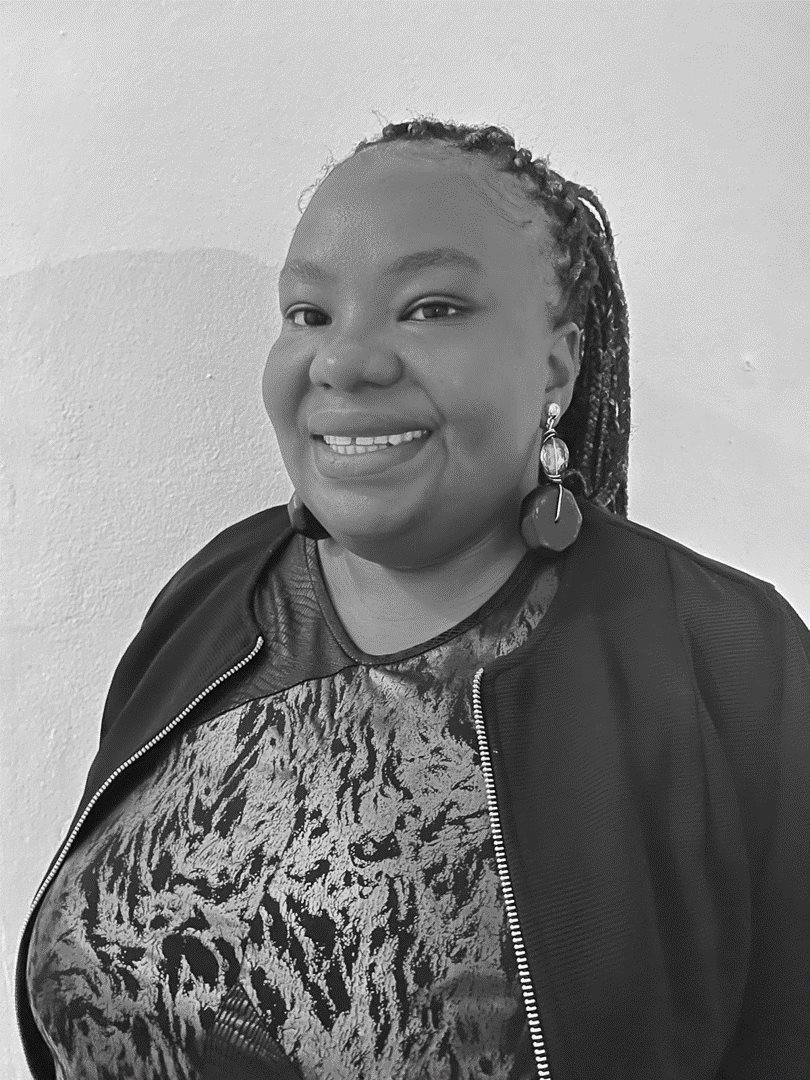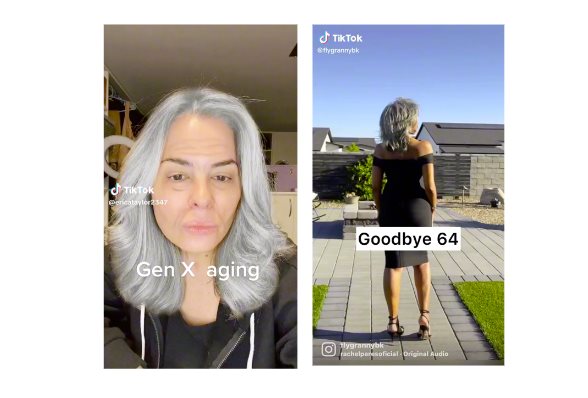
Related
Top stories

ICTToo little, too concentrated: why AI startup funding in Africa needs rethinking
Claire Zanuso 6 hours





More news



ESG & Sustainability
Redisa calls on govt to fix South Africa’s “broken” waste management system

























Youth will always be the biggest volume opportunity in South Africa. But, when it comes to products that require wealth and affluence, there’s a burgeoning empty nester crowd ready for brands to engage with them in meaningful and relevant ways that take into account their disinclination to add “old” as a label.
@lisa_lacroix I’m 57 and since I started taking care of my skin it looks and feels so much better. Here are the 3 most important products in my routine. These are the products that have made the greatest difference. More info in the comments #matureskin #matureskincare #thisis57 #artfulaging #curology #drbrenner #differin #skincare ♬ You - Petit Biscuit
From experiencing a life expectancy of only 53 during the height of the Aids Pandemic in 2003, the current 64.3 years marks a considerable journey. Furthermore, the UN projections bring optimism, indicating an expected increase to 70 in South Africa within 27 years.

If you’re thinking of gingerly old ladies and gents, think again. Having spent the last 20 years looking after their health, expect a different type of 55+. Strong and adventurous, they are definitely not going gently into that night. This is Gen X, this is 65, and this is retirement TikTok trends that are a testament to our more mature citizens saying, “rethink ageing”.
While it will grow, I don’t see e-commerce becoming mainstream in the next decade. I see it growing rapidly in the tech-savvy upper-income audience, but as e-commerce brands fail to look at the needs of a mid to lower-income audience, they’ll hamper their own potential for growth.
Convenience is still the predominant communication message, but brands havent considered that consumers in the mass and even lower incomes have different and more resonant needs.
1. The type of convenience is also targeted at an upper income audience, it focuses on emotional convenience and you’re too busy to do this so let us do it for you. But being busy is also a function of money. Having lots to do, places to be, and people to meet requires money. When you have less money, there’s less to fill your time. So, a trip to the mall to shop, to touch and feel products or even buy a pie in the process, is an outing for many middle to lower-income consumers. Convenience as a function of being too busy, is not a widely resonant need.
2. Little has been said about functional or technical convenience, especially for consumers who don’t own a vehicle. One ad by one of the big retailors compared the cost of driving to do your shopping against the cost of delivery. None have spoken about the cost of 2 taxis there and back. Or the convenience of not having to lug your shopping around from the taxi rank and the long walk from the taxi stop home.
3. In an economy where 80% of consumers are feeling stretched and we have an indebtedness crisis, till anxiety is real. It’s that feeling when you’re walking up and down the aisles picking the essentials, doing mental math, and wondering if you’re going to have to suffer the humiliation of leaving goods at the till. Isn’t online shopping just the perfect solution for this? However, a focus on the elite hasn’t considered selling this benefit of online shopping.
4. Has the “order online and collect” benefit been sold appropriately? It’s the perfect solution to wanting to leave my house but also not wanting to experience the till anxiety for those consumers who own a vehicle.
The first mover to speak to the mass audience about the benefits of e-commerce beyond “I’m too busy” convenience will win big.
For the longest time, the narrative on how black South Africans navigate their cultural and Western “selves” has focused on a two-worlds narrative. In this narrative, Black South Africans code-switch and live in two worlds which they keep separate. While this might be true for how baby boomers and Gen Xers navigated this space, it’s not true for Millennials and Gen Z. Post-apartheid, baby boomers and Gen Xers felt privileged to be allowed in white spaces. Hence, they kept these two parts of themselves separate. Never natural hair at the office, never English in a taxi. Think how older generations reserved traditional dress for traditional events. For my baby boomer mother, unrelaxed natural hair that is neatly
spiked is untidy and unprofessional.
@nqobilecheezie I’ve got good news for y’all ARA soap is now available at PEP for only R16,99 ����@ARASoap @pep.SA @Cosmetix SA #ARAnowinPEP #Imphephosoap #Imphepho #pephaul ♬ Self Care - Savannah Cristina
Millennials walked so Gen Z’s could run. Anticipate in Gen Z an audience deeply connected to their cultural heritage, expecting their Western and cultural identities to coexist seamlessly in one world rather than two. Expect them to question whether the “church space in the airport” will allow them to burn traditional incense or “impepho” and demand more inclusivity when it comes to cultural practices.
These youths also tap into their rich culture to fuel their creative pursuits as influencers, content creators, and artists.
The brands that will win in the future will integrate culture into previously unyielding and unexpected spaces, but also make cultural assets more accessible for Gen Z to use in their creative pursuits.
It’s the big buzzword of the season. But are marketers and companies utilising it across their business and not just on big sentimental brand ads? South Africans are among the most indebted people in the world, with as much as 73% of disposable household income servicing debt repayments. According to theNedFinHealth Monitor 2023 study, launched by Nedbank, a significant percentage of South Africans are struggling to keep up with their debt obligations, as 42% of respondents across income levels say they cannot manage their debt. Only 16% say they have no debt.
“Unmanageable debt is having a significant impact on the mental health of 67% of South Africans who constantly worry about their household debt,” the study found.
How are companies treating not just their ideal customers but also their defaulting customers? I'm certain I'm not the only customer who has received a strongly worded message for an outstanding R12.50. In the age of AI and automation, why are we not tailoring messages to have more empathy and not less?
The brands that will win WHEN (I’m choosing optimism) the economy recovers, will be the brands that showed the most empathy across more areas of their business. Remember, the 30 year old you were rude to because they couldn’t keep up with payments, may recover and live to 70.
That’s a customer lost for life with nothing good to say about your brand.
Finally, it wouldn't be a trends piece without a note on the need for authenticity. You know it. So instead of talking about it, I’ll refer you to some influencers to look at who show the relevance of this trend in South Africa.
Follow @phumezablack on Tik-Tok: a cashier at OK who lives in a one-room shack and shares her entire life, dating, friends, and pastimes.
Follow @kerrybbl on TikTok: a high-powered corporate executive in the financial services industry who authentically shared her BBL surgery journey.
@mbalinhlapho7 White leather seankers #bymbali #sistersatworkcleaningservices #immbalinhlapho #knowwithmbali #imahousekeeper #whitening #whiteticks #cleanlikeapro #cleanlikembali ♬ original sound - Mbali Nhlapho house keeper
Follow @mbalinhlapho7 on TikTok: a housekeeper who shares tips on how to take care of your home. “My name is Mbali Nhlapho and I’m a housekeeper” has become a catchphrase. She’s also popularly known for her abundant and constant recommendation of bicarbonate of soda for almost any and everything.
Follow @WheelsnToys on twitter as she shares her experience as a disabled black women. She explores sexuality as a disabled person, often sharing her experiences in dating and also for some time reviewed sex toys.
More representation is always good, right? With the two following TikTok stars, I am not sure.
Skomota for example, became a viral sensation after he won R3m on Betway. His rags to riches story captured the imagination of South Africans as we literally watched his life change before our eyes. The catch - he’s mentally disabled and part of what has made him a sensation are the “baddies” that hang on his shoulder despite his mental disability. Is this okay? I’m not convinced.
@phiwo219 chronicles his life living with a mental illness and some physical disabilities. But when watching his videos, I get a sense that people are laughing at him, not with him. But trust a political party to leverage his 175, 000 TikTok following.
The brands that will win in this space will be the ones who are brave enough to embrace unconventional influencers and find emotionally authentic ways to interact with the more troubled influencers. Is there a financial services brand brave enough to step in and stop Skomota from becoming another episode of I blew it? Who knows. But consumers are actively looking for brands to live out their purpose in real and meaningful ways.
2024 let’s see what you have in store for us.